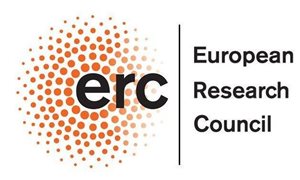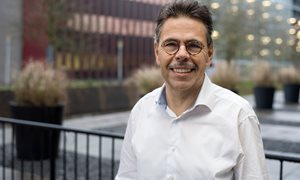
Jesper van Eck van der Sluijs and colleagues, theme cancer development and immune defense, have developed a method for the generation of different dendritic cell (DC) subtypes: cells of the immune system specialized in processing foreign molecules (including tumor-specific proteins) and presentation to so-called killer immune cells. They hope to develop a DC vaccination to boost the immune system of acute myeloid leukemia (AML) patients and to prevent disease recurrence.
AML, a blood-born cancer, originates in the bone marrow and affects about 700 people in the Netherlands each year. Most patients receive chemotherapy followed by a donor stem cell transplantation. Despite the transplant with healthy stem -and immune cells, patients may relapse.
Researchers from the Radboudumc have developed a vaccination strategy containing three DC subtypes, the generals of the immune system, which activate anti-tumor immune cells. In this way, the researchers hope to cure the AML patients from the disease. The results of the study were recently published in the journal Cancer Immunology and Immunotherapy (CII).
The generals of the immune system
The stem cell transplant provides AML patients with a donor-derived healthy immune system. Besides stem cells, the transplant also contains so-called killer immune cells, which may recognize and eradicate residual tumor cells says Jesper van Eck van der Sluijs, researcher in the group of Willemijn Hobo and Harry Dolstra at the Laboratory of Hematology at the Department of Laboratory Medicine, Radboudumc. Unfortunately, some patients relapse from the disease, which shows that additional therapeutic options are necessary.
"We can use a small fraction of the donor stem cell transplant for scientific research, with the aim to culture healthy immune cells," says Van Eck van der Sluijs. The researchers are particularly interested in culturing dendritic cells (DCs): the generals of the immune system. By production of stimulatory -and signaling molecules, and by presenting tumor cell-specific proteins, they strongly activate other immune cells: like a detective who lets a dog sniff the handkerchief of a fugitive criminal.
Rare but important subtype
Previously, the researchers were already able to generate two-out-of-three naturally occurring DC subsets from donor-derived stem cells says Van Eck van der Sluijs. "The third subtype, the type 1 conventional DC, is actually the most interesting for cancer treatment. They can even better activate the so-called killer cells of the immune system: the T cells and natural killer cells."
To investigate whether the cultured type 1 conventional DCs were similar to those directly found in human blood, Van Eck van der Sluijs and colleagues compared the genetic characteristics (RNA) of the cultured DCs with the type 1 conventional DCs directly isolated from human blood.
This demonstrated that the cells were genetically very similar. Additional studies showed that both, cultured and blood-derived type 1 conventional DCs, produced the same activation -and signaling molecules, says van Eck van der Sluijs. "In other words: they functioned similarly. Additional experiments demonstrated successful type 1 conventional DC-mediated activation of the so-called killer immune cells. ‘’When we cultured those DC-activated killer immune cells together with patient-derived cancer cells, the cancer cells were more efficiently killed compared with non-activated killer immune cells’’
Extensive testing first
Although the researchers’ work is good news for novel therapeutic options against AML, it doesn’t mean that AML patients can already be vaccinated with these cultured DCs. "For now, we have only demonstrated that we can culture the three subtypes of DCs, and that they potently stimulate anti-tumor immune responses," says van Eck van der Sluijs. Follow-up studies will further establish their effectiveness and validate their safety.
Finally, a clinical product must be developed and tested in patients. If that is successful, the product can be made available for therapeutic application. Van Eck van der Sluijs hopes that vaccination with type 1 conventional DCs will eventually make its way into the clinic. "It is of high importance that more therapeutic options become available for AML patients. We think that DC vaccination following donor stem cell transplantation could contribute to treatment of these patients. The developmental process will take many more years, but the first signs are good."
-
Want to know more about these subjects? Click on the buttons below for more news.
More information
Pauline Dekhuijzen

wetenschaps- en persvoorlichter
Related news items

European grants for groundbreaking Radboudumc research Professors Roshan Cools and Peter Friedl receive ERC Advanced Grant
26 April 2022The European Research Council (ERC) is awarding grants to Roshan Cools and Peter Friedl, both professors at Radboudumc. While Cools will investigate how brains control behaviour in (stressful) situations, Friedl will work on developing a new cancer therapy.
read more
Rubicon grants awarded to three RIMLS researchers
19 April 2022Three researchers have received Rubicon funding from NWO/ZonMw. This will enable Elke Muntjewerff, Laura de Vries and Laurens van de Wiel to do research at a foreign research institute for the next two years.
read more
Tackling cancer with radioactive particles
2 September 2021 Professor Sandra Heskamp receives grant for research into cancer treatment with radioactivity read more
New culture method reveals how cancer cells bypass immune system
5 July 2021Publication in Cancer Immunology Research
read more

